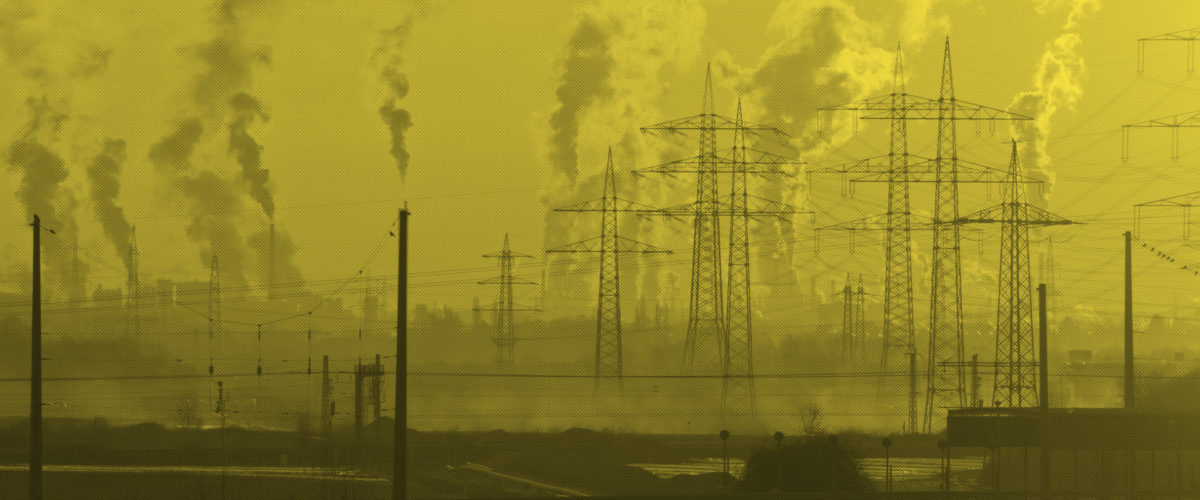How Utilities Use Our Electric Bills to Block Climate Action
Published Jan 30, 2023

Electric utilities knew about the climate risks of fossil fuels for decades. But rather than build clean energy, they lied and lobbied for profit — and used ratepayers funds to do it.
Reducing power plant emissions — a major source of our climate pollution — will be key in the fight against climate change. To that end, the Biden administration aims to reach zero emissions in our power sector by 2035.
So why are companies planning 17 gigawatts of gas-fired power plants right now?
For years, utilities and dirty energy companies have touted gas as a “bridge fuel” in our energy transition. Not only has that claim proved empty — energy utility lobbyists have also spread climate misinformation and blocked clean energy development. Even worse, they’ve used ratepayer funds to do it.
Big Private Electric Utilities Slow-Walk Climate Action
Thanks to slipping oversight and corporate capture, private utilities are bigger and more powerful than ever. With that power, they’ve deployed huge PR campaigns and lobbying efforts to boost their bottom lines.
Electric utilities make up one of the biggest sectors lobbying in D.C. And of the millions of dollars the industry spends each year, most comes from the Edison Electric Institute, its main trade association.
EEI wields its $90 million budget for the benefit of its members, which include every private electric utility in the country. But a hefty slice of that budget comes from membership dues, which are pulled partly from ratepayer funds.
Drawing from the bills we pay to keep the lights on, EEI has fought policies to reduce emissions and pollution. For example, in the 2010s, EEI rallied funds for another industry group to block then-President Obama’s Clean Power Plan.
It has also waged PR campaigns that fuel climate denial, defend its slow climate action, and even raise costs and restrictions for rooftop solar.
The Power Sector’s Legacy of Climate Denial Follows Us Today
Since scientists first sounded the alarm on human-caused climate change in the 1970s, electric utilities and EEI have known about it. But by the 2000s, they went from supporting major climate scientists to hawking climate denial.
For instance, EEI and three utilities helped found the Global Climate Coalition, one of the biggest purveyors of climate denial. EEI also helped found the Information Council on the Environment, which ran climate denial ads throughout the 1990s.
Given its climate knowledge, the power sector could have invested in clean energy. This would’ve been good not only for the planet — renewables are now cheaper than fossil fuels, and lower energy costs for families.
Instead, utilities chose to double down on dirty power. And this choice is directly responsible for our current stock of expensive, dying, polluting, and climate-wrecking coal-fired power plants.
Now, we can expect the same outcome for the current buildout of gas plants. The industry is once again choosing to expand expensive, dirty infrastructure and cling to dying assets. Meanwhile, ratepayers are stuck higher bills — and more dangerous pollution.
Utilities Turn to Climate Scams to Keep Afloat
Now, utilities are aiming to leverage carbon capture tax credits to keep unprofitable plants online. The tax credit allows utilities to rake in public funds to install carbon capture technology.
Carbon capture is designed to pull carbon emitted from plants and store it deep underground. But utilities know that this technology has only been an expensive failure. Moreover, it will allow fossil fuel power and extraction to keep polluting nearby communities.
Plus, the tax credits don’t cover the whole cost of carbon capture. Utilities will pass some of the costs to ratepayers, in the form of higher bills.
Once again, utilities are refusing to invest in clean renewables. Instead, they’d rather lean on industry scams that boost profits and entrench dirty energy.
Our Energy Transition Doesn’t Need Utility Greenwashing
Electric utilities have touted their climate goals and positioned themselves as partners in our energy transition. Southern Company and Duke Energy, for example, have announced goals to reach “net zero carbon emissions by 2050.”
Yet, utilities across the country are still planning new gas-powered plants. What’s more, they’re greenwashing these plants with “net-zero” claims, thanks to bogus carbon capture technology.
History has shown that private utilities won’t help us transition to clean energy. In fact, many have done their best to block clean energy progress.
We can’t take them at their word. Instead, we need greater scrutiny on utilities and their lobbying, policies that end fossil fuel production, and more funding for clean energy.
Spread the word — we can’t let utilities get away with greenwashing!
Enjoyed this article?
Sign up for updates.
TO TOP


